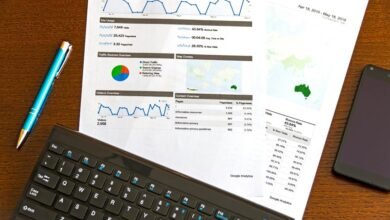Strategic Budgeting for Long-Term Business Success 3662338612

Strategic budgeting is a critical component of long-term business success. It involves aligning financial resources with organizational goals to ensure optimal resource allocation. By employing effective budgeting techniques, companies can adapt to fluctuating market conditions. However, the true challenge lies in the ongoing monitoring and adjustment of these budgets. Understanding how to implement and refine these strategies can significantly impact an organization’s financial health and overall performance. What are the key elements that drive this process forward?
Understanding the Basics of Strategic Budgeting
Strategic budgeting serves as a pivotal framework for organizations aiming to align their financial resources with long-term objectives.
It encompasses essential budgeting principles that guide resource allocation, ensuring sustainability and growth. Effective financial forecasting is integral, allowing businesses to anticipate challenges and opportunities.
Aligning Budgets With Business Goals
A well-aligned budget is crucial for driving an organization toward its strategic goals. Achieving goal alignment necessitates integrating financial forecasting with operational objectives, ensuring resources are allocated effectively.
This strategic approach enables organizations to adapt to changing market conditions while maintaining focus on long-term aspirations. By synchronizing budgets with business goals, companies can enhance performance, improve accountability, and foster sustainable growth.
Implementing Effective Budgeting Techniques
Effective budgeting techniques serve as a foundation for informed decision-making and resource allocation within organizations.
By utilizing advanced budgeting tools and integrating robust forecasting techniques, companies can better anticipate financial trends and allocate resources efficiently.
These methodologies empower organizations to strategically navigate market fluctuations and optimize performance, fostering a culture of financial discipline that ultimately supports long-term business success and operational freedom.
Monitoring and Adjusting Your Budget for Success
Regularly monitoring and adjusting a budget is crucial for maintaining financial health and achieving business goals.
Conducting a thorough budget review allows businesses to identify variances and adjust projections accordingly.
Furthermore, effective expense tracking enables organizations to pinpoint unnecessary expenditures, fostering a culture of financial freedom.
Strategic adjustments ensure resources are allocated efficiently, promoting sustainable growth and long-term success in an ever-evolving marketplace.
Conclusion
In conclusion, strategic budgeting serves as a cornerstone for achieving long-term business success by aligning financial resources with organizational objectives. Notably, companies that engage in proactive budgeting practices experience up to 30% higher profitability compared to those that do not. This statistic underscores the importance of integrating comprehensive budgeting techniques and continuous monitoring. By fostering a culture of accountability and adaptability, organizations are better equipped to navigate challenges and maximize their growth potential in an ever-evolving market landscape.





